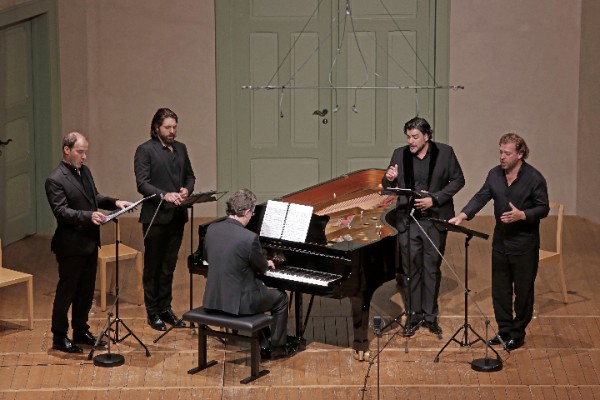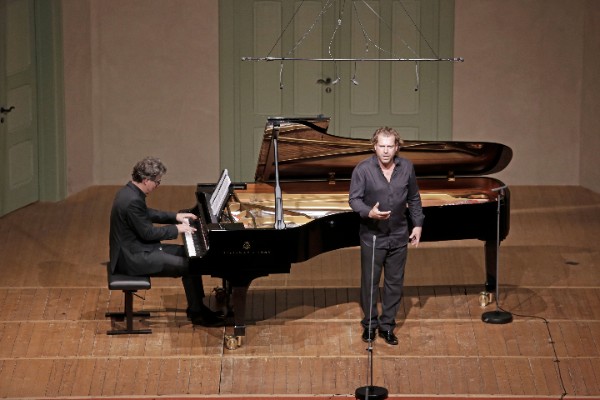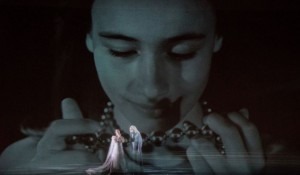
Credit: https://www.staatsoper-berlin.de/
They engaged Wim Wenders, one of Germany’s most successful filmmakers, to give his operatic directorial debut, and committed Daniel Barenboim, who quite rarely makes routine operatic appearances, to guide the performance musically.
The plot, set in ancient Ceylon, tells the story of two friends, Zurga and Nadir, who in their youth were both obsessed with the same woman but chose not to pursue her in order to maintain their friendship. Years later they meet again: Zurga now heads the tribe of the Pearl Fishers. Nadir’s life has taken him in different directions as an adventurer. The mysterious priestess Leila shows up for her yearly ritual of protection for the Pearl Fishers, and she turns out to be no other than the woman the two friends had both been in love with. This time, however, Leila and Nadir pursue their romance, and all hell breaks loose.
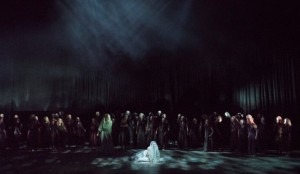
Credit: https://www.staatsoper-berlin.de/
But musically this Pearl Fishers succeeded. Olga Peretyako-Mariotti delivered a roof raising performance, putting her bel canto background to good use. She unleashed astounding coloraturas, floating diminuendos, effortless trills and a squillo that stopped you in your tracks. Her middle range was treacle-like and luscious. She was nicely paired with tenor Francesco Demuro as Nadir who delivered some stunning moments, especially in the first act “Je crois entendre encore”, which he sang with daring head notes at the top. His voice, with only a few pinches in the upper register, also harmonized nicely with the main star of the evening, Gyula Orendt’s Zurga. The young Hungarian-Romanian baritone is considered a home grown talent in Berlin, possesses a luscious baritone with tenoral qualities, and an engaging and captivating stage presence. This is a talent worth watching.
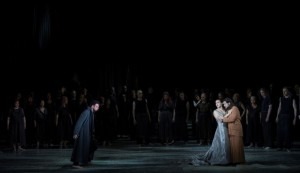
Credit: https://www.staatsoper-berlin.de/
It is doubtful whether Wim Wenders will be chasing other opera projects. They would be unlikely to achieve the unforgettable status of his movies.
Performance attended: 24 June 2017
Official Website

